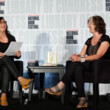Blessings: A Novel
(Libby/OverDrive eBook, Kindle)
Available Platforms
Description
Excerpt
Similar Titles From NoveList
Similar Authors From NoveList
Published Reviews
Booklist Review
Quindlen's novels, including the best-selling Black and Blue (1997), evince a topicality and clear-cut moral authority reflective of her work as a columnist, currently for Newsweek. Such an issue-oriented perspective can overburden fiction, but thankfully Quindlen is too fine a writer and too sensitive to the complexities of the human condition to write platitudinous fiction. Her newest novel, a work of glowing lyricism and genuine redemption, begins when a very young and nervous couple leaves a small box by the garage of a grand old estate called Blessings. The handyman, Charles "Skip" Cuddy, not long out of jail and sincerely grateful to be tending such beautiful property, finds their abandoned newborn baby and decides to care for her in secret. But it doesn'st take his watchful employer, Lydia Blessing, long to discover her newest tenant or to fall in love with little Faith, just as Skip has. They make an odd pair, the motherless townie and the poor little rich octogenarian. Widowed for decades and still mourning the violent death of her brother, Lydia hasn't been much of a mother to her own daughter, and as she watches Skip revel in unexpected fatherhood, she is assailed by memories and suddenly realizes not only that she's lived a penitent's isolated and emotionally frugal existence but also why. Quindlen's lush descriptions of the splendor of the Blessing estate stand in evocative contrast to the rigidity of the upper-class mores that destroyed Lydia's and her brother's lives. Skip, too, is a victim of circumstances, but in spite of the injustices he's suffered, he is goodness incarnate and ultimately inspires all of Quindlen's compelling characters to embrace, not count, their blessings. --Donna Seaman
Publisher's Weekly Review
Venturing into fictional territory far from the blue-collar neighborhoods of Black and Blue and other works, Quindlen's immensely appealing new novel is a study in social contrasts and of characters whose differences are redeemed by the transformative power of love. The eponymous Blessings is a stately house now gone to seed, inhabited by Mrs. Blessing, an 80-year-old wealthy semirecluse with an acerbic tongue and a reputation for hanging on to every nickel. Widowed during WWII, Lydia Blessing was banished to her socially prominent family's country estate for reasons that are revealed only gradually. Austere, unbending and joyless, Lydia has no idea, when she hires young Skip Cuddy as her handyman, how her life and his are about to change. Skip had promise once, but bad companions and an absence of parental guidance have led to a stint in the county jail. When Skip stumbles upon a newborn baby girl who's been abandoned at Blessings, he suddenly has a purpose in life. With tender devotion, he cares secretly for the baby for four months, in the process forming a bond with Mrs. Blessing, who discovers and admires his clandestine parenting skills. A double betrayal destroys their idyll. As usual, Quindlen's fine-tuned ear for the class distinctions of speech results in convincing dialogue. Evoking a bygone patrician world, she endows Blessings with an almost magical aura. While it skirts sentimentality by a hairbreadth, the narrative is old-fashioned in a positive way, telling a dramatic story through characters who develop and change, and testifying to the triumph of human decency when love is permitted to grow and flourish. (Sept. 24) Forecast: Count on this feel-good novel, a book that will appeal to the entire family, to ring up bestseller sales as a perfect Christmas gift. (c) Copyright PWxyz, LLC. All rights reserved
Library Journal Review
Quindlen's short, sentimentally sweet new novel (following Black and Blue) is ultimately unsatisfying. The wealthy and reclusive 80-year-old Lydia Blessing lives in the eponymous "Blessings," the country estate to which she was banished by her family after the death of her husband in World War II. Two events conspire to change the remaining years of Lydia's life: she hires twentysomething Skip Cuddy as a handyman, and a baby is abandoned on her doorstep. Skip, whose friendship with some local lowlifes led to a stint in jail, tries to hide the existence of the baby from his prickly and critical employer, to no avail. Both Skip and Lydia fall in love with the baby, whom they name Faith, and in spite of their misgivings come together as a makeshift family. But after four months, their secret is revealed, and Faith is taken away. Quindlen's talent for realistic dialog can't overcome the melodramatic plot and one-dimensional characters. Of course, her fans will want to read this, but don't go overboard on the number you purchase. [Previewed in Prepub Alert, LJ 5/1/02.]-Nancy Pearl, Washington Ctr. for the Book, Seattle (c) Copyright 2010. Library Journals LLC, a wholly owned subsidiary of Media Source, Inc. No redistribution permitted.
Kirkus Book Review
Fourth adult novel from Newsweek columnist Quindlen (Black and Blue, 1998, etc.), a story of lost souls redeemed by love. A friend of Lydia Blessing's once told her that there was a secret at the heart of every family and-predictably-it's revealed that the Blessing family had dark secrets to spare. Eighty years old when the story begins, Lydia lives more in the past than present, haunted by memories. Her handsome, ne'er-do-well, secretly homosexual brother Sunny was a shotgun suicide; and Lydia's long-ago marriage to Sunny's best friend Ben Carton was a sham (madly in love with Sunny, Ben obligingly married his sister, though she was pregnant by another man, then conveniently died in WWII). Her charming father had evidently married her cold and disapproving mother mostly for money, and it turns out that Ethel Blessing, to all appearances a staunch Episcopalian, was actually Jewish. The family shuttled between Blessings, the enormous house on the vast New England estate that her father called his gentleman's farm, and a Manhattan townhouse. Lydia and her brother attended the right schools, wore the right clothes, socialized with the right people, etc. Hoping to conceal the true paternity of her redheaded granddaughter (no, Ben really couldn't manage sex with a woman), Ethel packed Lydia off to the Blessings, where she raised her daughter Meredith more or less alone and otherwise observed the rules and routines of upper-class WASPs. And so the decades rolled by and now Lydia makes do with the company of her cranky Korean housekeeper and the estate caretaker, Skip Cuddy, a drifter with a heart of gold who lives in the shabby apartment over her five-car garage. Nothing much changes-until a newborn baby is left on the doorstep. The caretaker moves her to his dresser drawer, figures out how to feed her, and names her Faith. And Lydia is shaken out of her genteel torpor at last. As soap-opera-parable with old-fashioned contrivances: comfortable, not Quindlen's best.
Booklist Reviews
Quindlen's novels, including the best-selling Black and Blue (1997), evince a topicality and clear-cut moral authority reflective of her work as a columnist, currently for Newsweek. Such an issue-oriented perspective can overburden fiction, but thankfully Quindlen is too fine a writer and too sensitive to the complexities of the human condition to write platitudinous fiction. Her newest novel, a work of glowing lyricism and genuine redemption, begins when a very young and nervous couple leaves a small box by the garage of a grand old estate called Blessings. The handyman, Charles "Skip" Cuddy, not long out of jail and sincerely grateful to be tending such beautiful property, finds their abandoned newborn baby and decides to care for her in secret. But it doesn't take his watchful employer, Lydia Blessing, long to discover her newest tenant or to fall in love with little Faith, just as Skip has. They make an odd pair, the motherless townie and the poor little rich octogenarian. Widowed for decades and still mourning the violent death of her brother, Lydia hasn't been much of a mother to her own daughter, and as she watches Skip revel in unexpected fatherhood, she is assailed by memories and suddenly realizes not only that she's lived a penitent's isolated and emotionally frugal existence but also why. Quindlen's lush descriptions of the splendor of the Blessing estate stand in evocative contrast to the rigidity of the upper-class mores that destroyed Lydia's and her brother's lives. Skip, too, is a victim of circumstances, but in spite of the injustices he's suffered, he is goodness incarnate and ultimately inspires all of Quindlen's compelling characters to embrace, not count, their blessings. ((Reviewed September 15, 2002)) Copyright 2002 Booklist Reviews
Library Journal Reviews
A baby is abandoned at Blessing's, home to town matriarch Lydia Blessing, and she and her caretaker opt to raise it. The publisher considers this one more big step up for the ever-popular Quindlen. Copyright 2002 Cahners Business Information.
Library Journal Reviews
Quindlen's short, sentimentally sweet new novel (following Black and Blue) is ultimately unsatisfying. The wealthy and reclusive 80-year-old Lydia Blessing lives in the eponymous "Blessings," the country estate to which she was banished by her family after the death of her husband in World War II. Two events conspire to change the remaining years of Lydia's life: she hires twentysomething Skip Cuddy as a handyman, and a baby is abandoned on her doorstep. Skip, whose friendship with some local lowlifes led to a stint in jail, tries to hide the existence of the baby from his prickly and critical employer, to no avail. Both Skip and Lydia fall in love with the baby, whom they name Faith, and in spite of their misgivings come together as a makeshift family. But after four months, their secret is revealed, and Faith is taken away. Quindlen's talent for realistic dialog can't overcome the melodramatic plot and one-dimensional characters. Of course, her fans will want to read this, but don't go overboard on the number you purchase. [Previewed in Prepub Alert, LJ 5/1/02.]-Nancy Pearl, Washington Ctr. for the Book, Seattle Copyright 2002 Cahners Business Information.
Publishers Weekly Reviews
Venturing into fictional territory far from the blue-collar neighborhoods of Black and Blue and other works, Quindlen's immensely appealing new novel is a study in social contrasts and of characters whose differences are redeemed by the transformative power of love. The eponymous Blessings is a stately house now gone to seed, inhabited by Mrs. Blessing, an 80-year-old wealthy semirecluse with an acerbic tongue and a reputation for hanging on to every nickel. Widowed during WWII, Lydia Blessing was banished to her socially prominent family's country estate for reasons that are revealed only gradually. Austere, unbending and joyless, Lydia has no idea, when she hires young Skip Cuddy as her handyman, how her life and his are about to change. Skip had promise once, but bad companions and an absence of parental guidance have led to a stint in the county jail. When Skip stumbles upon a newborn baby girl who's been abandoned at Blessings, he suddenly has a purpose in life. With tender devotion, he cares secretly for the baby for four months, in the process forming a bond with Mrs. Blessing, who discovers and admires his clandestine parenting skills. A double betrayal destroys their idyll. As usual, Quindlen's fine-tuned ear for the class distinctions of speech results in convincing dialogue. Evoking a bygone patrician world, she endows Blessings with an almost magical aura. While it skirts sentimentality by a hairbreadth, the narrative is old-fashioned in a positive way, telling a dramatic story through characters who develop and change, and testifying to the triumph of human decency when love is permitted to grow and flourish. (Sept. 24) Forecast: Count on this feel-good novel, a book that will appeal to the entire family, to ring up bestseller sales as a perfect Christmas gift. Copyright 2002 Cahners Business Information.
Reviews from GoodReads
Citations
Quindlen, A. (2002). Blessings: A Novel . Random House Publishing Group.
Chicago / Turabian - Author Date Citation, 17th Edition (style guide)Quindlen, Anna. 2002. Blessings: A Novel. Random House Publishing Group.
Chicago / Turabian - Humanities (Notes and Bibliography) Citation, 17th Edition (style guide)Quindlen, Anna. Blessings: A Novel Random House Publishing Group, 2002.
Harvard Citation (style guide)Quindlen, A. (2002). Blessings: a novel. Random House Publishing Group.
MLA Citation, 9th Edition (style guide)Quindlen, Anna. Blessings: A Novel Random House Publishing Group, 2002.
Copy Details
| Collection | Owned | Available | Number of Holds |
|---|---|---|---|
| Libby | 1 | 0 | 0 |




































